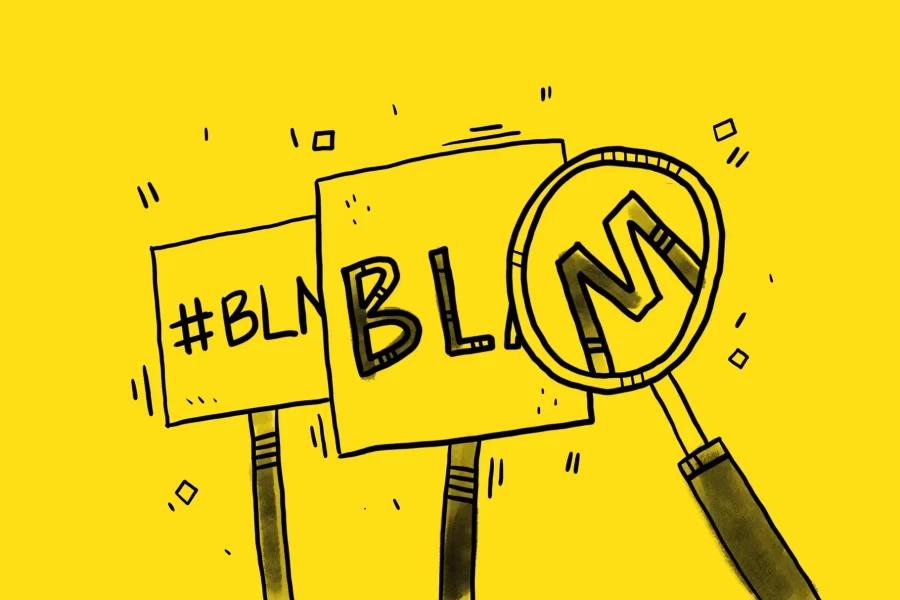Letter to the Editors: reframing the meaning Black Lives Matter
An open letter from the Black Student Union about what the phrase means today
February 18, 2022
February is Black History Month, and this year, the Black Student Union has worked alongside teachers and administrators at RV to make an engaging, diverse experience for all students, and to celebrate the impact that Black lives have had throughout American history. We in the BSU firmly believe that Black history is American history, and that they are — will forever be — intertwined and driven by each other.
This Black History Month, we recognize the immense amount of work ahead of us in terms of achieving equity, justice and accountability in our schools and communities. We acknowledge that there are challenges ahead, many of which our ancestors and forefathers faced throughout history. We know that we face political pressure within and beyond the school. This is why we are choosing to reframe the conversation surrounding the phrase “Black Lives Matter.”
To us, and many in our generation, the phrase Black Lives Matter does not have political overtones or connotations. While some communities view it as reactionary political discourse, our usage is rooted in the exact meaning of the words, that Black lives do matter, too. We use it and apply it to all walks of life: Black Students Matter. Black Teachers Matter. Black Police Officers Matter. Black Parents Matter. Black Artists, Musicians, Athletes, Soldiers, Dancers — they all matter.
Serving as a revitalized, modern assertion celebrating Black culture and calling for racial equity, Black Lives Matter is in the exact vein as earlier declarations for Civil Rights, from “A change is gonna come,” to “I have a dream” to “Yes we can.” We in the BSU advocate for the phrase not as a reactionary call to action, but as a commemoration of Black life, culture and accomplishments. Our utilization of “Black Lives Matter” calls for the acknowledgment of historical and contemporary achievements of Black activists and celebrates the unique value Black students bring to society, education, athletics, academics and the arts. Black Lives Matter implies both an awareness of modern-day issues that Black individuals continue to endure as a result of our country’s intricate relationships with race and history, but also memorializes the joy and beauty of Black communities.
Rooted in the same passion demonstrated by prominent Black historical leaders like Martin Luther King Jr., John Lewis and James Farmer, the phrase Black Lives Matter, coined by the new generation of students, invokes pride in the Black community — pride in one’s skin, culture, abilities and one’s rights. It communicates the value, significance and beauty of Black lives that should be freely celebrated. To associate Black Lives Matter with specific partisan ideologies, or to view it in a purely-political light, is inaccurate and diminishing to the authentic meaning. This Black History Month, we invite our fellow classmates to revisit the meaning of the phrase with us.
Through the phrase Black Lives Matter, we remind ourselves of the work we have to do, as well as the things we have accomplished. We remember our roots, while seeking the positive in the future. Black History Month is all about taking a moment to pause and reflect on those who dedicated their lives to equality and celebrating Black culture, and we can think of no better way of doing so than by saying — alongside our peers — that Black Lives Matter.






Lowell Williams • Feb 18, 2022 at 2:17 pm
Cogent, honest, relevant. I speak as the grandfather on one of the members of the BSU. I went to jail at 16 y.o age having attended legally segregated schools before Thurgood Marshall won Brown vs. Board of Education. You young people are taking up the mantle and I joyful and thankful.